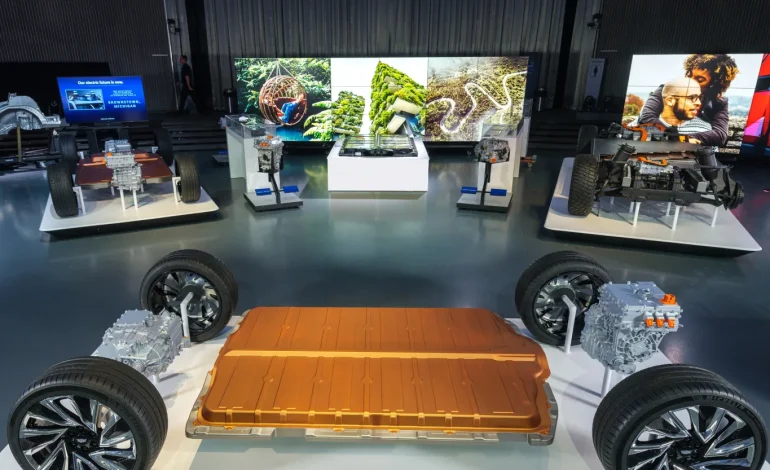General Motors (GM) has announced plans to discontinue the use of the “Ultium” name for its electric vehicle (EV) batteries and supporting technologies, marking a significant shift in its branding strategy after years of promoting the term.
The decision comes as the automaker re-evaluates its approach to EVs and battery production in response to evolving market conditions.
The Detroit-based company confirmed the change on Tuesday during an investor event, where executives discussed strategies to reduce battery costs and diversify battery chemistries. While the Ultium branding will be retired, GM stated that the batteries and technologies themselves will continue to be utilized, with the exception of production operations like the “Ultium Cells” joint venture plants with LG Energy Solution.
GM has invested heavily in marketing and advertising the Ultium brand, including high-profile Super Bowl ads in both 2021 and 2022. However, the company is now focusing on improving profitability and flexibility in its operations, emphasizing a strategy to produce both traditional internal combustion engine vehicles and EVs as adoption rates have not met expectations.
The company has set a target of producing approximately 200,000 EVs for the North American market this year, a reduction from earlier projections that ranged from 200,000 to 250,000 units. GM reported a year-over-year increase in EV sales of around 60% in the third quarter, selling approximately 32,100 units, although EVs accounted for just 4.9% of total sales.
GM is also shifting its battery production strategy, moving away from its original Ultium pouch cells developed with LG, which utilize nickel manganese cobalt (NMC), to more diverse battery types and chemistries. Earlier this year, the company announced a deal worth over $3 billion with South Korea’s Samsung SDI to manufacture prismatic cells, a different battery configuration.
Kurt Kelty, GM’s vice president of battery technology, explained the transition from a “single-source, single-form factor” strategy to a multi-chemistry and multi-supplier approach, allowing the company to optimize battery performance for specific vehicle needs. The company aims to lower production costs significantly by moving towards lithium iron phosphate (LFP) batteries, which are cheaper and more environmentally friendly than NMC cells, although they may offer lower energy density and performance in colder conditions.
Additionally, GM is planning to build a battery prototyping center at its Warren, Michigan technical center, which is expected to open in 2027. This facility is projected to expedite battery development timelines by up to a year.
Amid this transformation, GM remains committed to producing a diverse range of vehicles, balancing investments in both electric and internal combustion engine models. GM CEO Mary Barra expressed optimism about the company’s financial outlook, stating that the EV strategy is expected to yield positive variable profits in the near future.









